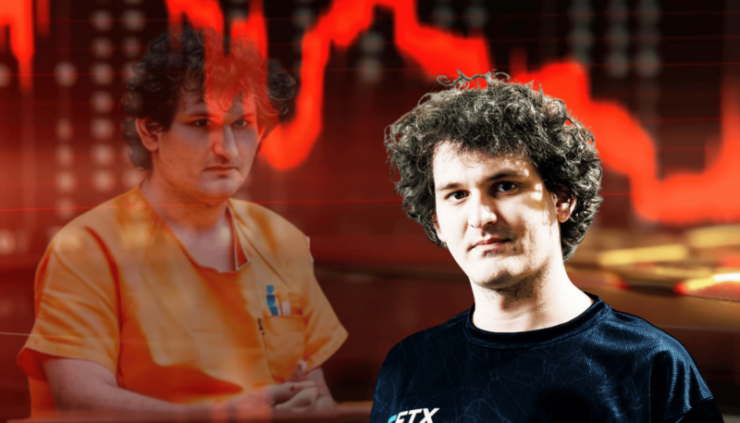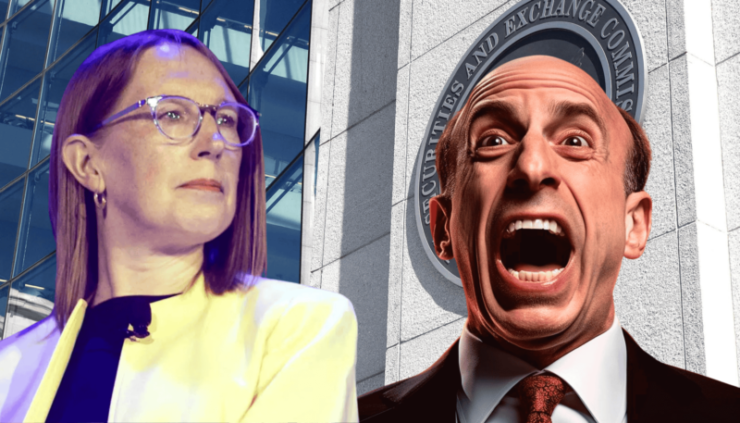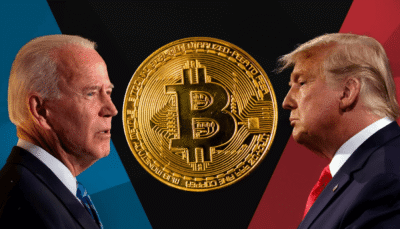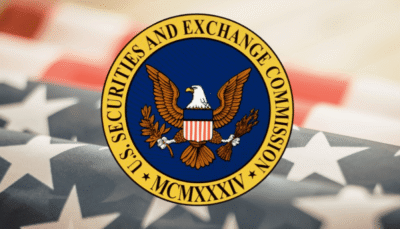In the aftermath of the SEC officially dismissing its lawsuit against Coinbase, Commissioner Hester Peirce has publicly criticized the regulatory approach of former SEC Chair Gary Gensler, blaming it for fostering fraud and misconduct in the crypto industry.
In a statement released on Friday, Peirce argued that Gensler’s aggressive “regulation-by-enforcement” strategy, which emphasized crackdowns over clear guidelines, failed to protect investors and instead fueled a wave of bad actors.
“The Commission—unwisely in my view—chose not to use its policy tools but instead relied on a series of enforcement actions to write crypto policy. Regardless of their own policy preferences, the Commission’s talented enforcement staff, who report to the Chairman, crafted an enforcement program that reflected this choice. The enforcement staff appropriately worked hard to execute as effectively as possible the Commission’s directives to pursue approved enforcement actions. Meanwhile, the Commission’s policy staff could not engage productively with the public to build a workable regulatory framework for crypto absent a Commission directive to do so. Such a directive was absent for the past four years,” She wrote
She went on to imply that many of the biggest crypto scandals of the past four years—including the catastrophic $32 billion collapse of FTX—could have been prevented if not for Gensler’s restrictive policies. By refusing to establish industry-specific rules, Peirce suggests the SEC pushed legitimate firms away, inadvertently creating an environment where fraud thrived unchecked.
Regulatory Gaps and FTX’s Downfall
The downfall of FTX, once one of the world’s largest cryptocurrency exchanges, sent shockwaves through the industry, erasing billions in customer funds, shaking investor confidence, and triggering a regulatory firestorm.
At its peak, FTX was valued at $32 billion, boasting high-profile partnerships, a massive user base, and the backing of some of the biggest venture capital firms in the world. But behind the scenes, the exchange’s finances were built on a fragile foundation of risky bets, internal mismanagement, and alleged fraud.
As investigations unfolded, it was revealed that FTX had misused billions in customer deposits, funneling funds to Alameda Research for high-risk trading strategies. Reports estimated that $8 billion in customer funds were unaccounted for, leading to fraud charges against Sam Bankman-Fried and other FTX executives.
SBF was arrested in December 2022 and later convicted of fraud, conspiracy, and money laundering, marking one of the most high-profile white-collar criminal cases in recent history.

Did the SEC’s Regulatory Approach Enable FTX’s Rise and Fall?
As SEC Commissioner Hester Peirce suggested, the lack of clear regulatory guidelines under former SEC Chair Gary Gensler may have played a role in allowing FTX to operate unchecked.
Rather than establishing comprehensive rules tailored to the crypto industry, the SEC under Gensler took an enforcement-first approach, launching lawsuits against various crypto firms without providing a clear path to compliance.
This regulatory uncertainty discouraged legitimate firms from engaging with U.S. regulators, while bad actors like FTX thrived in the absence of well-defined oversight. Critics argue that if the SEC had implemented clearer frameworks for crypto exchanges, investors might have been better protected, and a disaster of FTX’s magnitude could have been prevented.
With Gensler no longer leading the SEC and regulatory attitudes shifting, the crypto industry now faces a critical moment—whether clearer regulations will finally emerge or if enforcement-first policies will continue to dominate the landscape.
Quick Facts:
- Commissioner Hester Peirce has criticized the SEC’s enforcement-focused approach, advocating for clearer guidelines.
- Pierce linked FTX Exchange’s bankruptcy to unclear SEC regulations, highlighting the need for better oversight.
- A crypto task force has been established to create updated regulations that balance investor protection with innovation.





